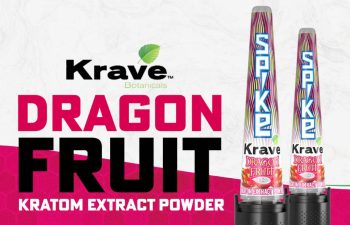Data: A Better Way of Knowing
It’s 2024, and the COVID era has passed – we think, at least for now. As we’ve come out of our home-spun antiviral cocoons, one thing has been certain: the analog era is over. Whatever vestiges of the pre-digital age that managed to survive up until March 2020 are now dead. Marketing teams are no longer hanging out on Madison Avenue, holding Scotch snifters in thousand-dollar suits. Instead, they’re behind a computer, writing algorithms and analyzing results. Data is king.
Suddenly, being a nerd is now cool and statistics are sexy. It’s no longer so much about instincts and “it” factors, so much as it’s about data analytics. But what exactly are data analytics, and why are they important for you? Simple answer: Because they’re reliable.
But for a big-picture answer, let’s use our imaginations for a moment. Picture going back to the medieval times, where diagnosing an illness was as random as the topics of conversation at a toddlers’ tea party. Contracted tuberculosis in the 15th century? Must be because you walked under a ladder and pet that black cat? No one likes cat people, anyways. All things considered, the medieval period sucked, and it’s definitely not a place you’d want to live in—so why are you running your business like a 12-the century peasant? That’s precisely where the power of data analytics comes in. The guessing game is over.
So, what are data analytics exactly? They’re your solution for injecting your business with evidence-based insights, enabling you to interpret market needs and trends, and understand the hows and the whys behind your business’s performance. In this day and age, collecting and analyzing your data is crucial for making informed decisions, understanding customer behavior, and streamlining operations.
To help us nerd out even more on an already nerdy topic, we talked to Dr. Gabrielle Pogge. Dr. Pogge is a data analyst with a PhD in Social Psychology who consults with marketing upstart, Medicine Tree Media. “Data analytics give you the superpower to describe what is happening within your small business,” Dr. Pogge explains. “They tell us why it’s happening and predict what will happen in the future to turn insights into actions.” Sounds smart, huh? Sit tight and buckle up, buttercup. Your world’s about to get a whole lot smarter.
“By using each of these elements of data analytics,” Dr. Pogge elaborates, “you can discover useful insights that allow you to make empirically informed business decisions in which you can be confident. The most powerful insights come from employing a combination of all four elements.”
Simply put, data analytics help you understand your own business’s story: what happened, why it happened, what might happen next, and what you should do about it. It’s an epic narrative of harrowing adventures—and you are the hero.
Stay tuned for next month’s installment, when Dr. Pogge digs in deeper to give us useful tips on how to apply data analytics in your everyday business operations.
But first thing’s first: For this month, let’s look at the four types of insights data analytics offer:
Descriptive Analytics
These reveal what has already happened. It’s like looking at someone’s Instagram. Hopefully, you’re finding out what they had for dinner or what they bought from the record store (you know; because you care). But more likely, you’re just discovering whether or not they feel sexy making duck lips. it. For our purposes, they’re showing you what has happened in the past with your business. For example, it can tell you how many items you sold last month or how many people visited your store over Christmas Break.
Diagnostic Analytics
Think of these as playing good old Sherlock Holmes. Or maybe you’re more of the Nancy Drew type (I mean . . . you do you). Either way, the point is, they help you find the culprit; they explain why something happened. For instance, if your sales dropped last month, diagnostic analytics would help you figure out why. Maybe a dispensary opened nearby and
Predictive Analytics
Imagine having a Magic 8 Ball, but one that actually works. Predictive analytics use data from the past to make overly educated guesses about what will happen in the future. For example, they could predict how much of a particular product you’ll sell next month. Or maybe, they’ll analyze customer traffic to give you a better idea of how to cut or expand your hours. The possibilities are just like numbers; they’re infinite.
Prescriptive Analytics
This is like having Stephen Hawking as best buddy. It not only predicts what might happen but also gives you advice on what to do about it. If the data predict that particular products will be popular, prescriptive analytics might suggest ordering more of it in advance to cash in on that trend.
“By using each of these elements of data analytics,” Dr. Pogge elaborates, “you can discover useful insights that allow you to make empirically informed business decisions in which you can be confident. The most powerful insights come from employing a combination of all four elements.”
Simply put, data analytics help you understand your own business’s story: what happened, why it happened, what might happen next, and what you should do about it. It’s an epic narrative of harrowing adventures—and you are the hero.
Stay tuned for next month’s installment, when Dr. Pogge digs in deeper to give us useful tips on how to apply data analytics in your everyday business operations.
















